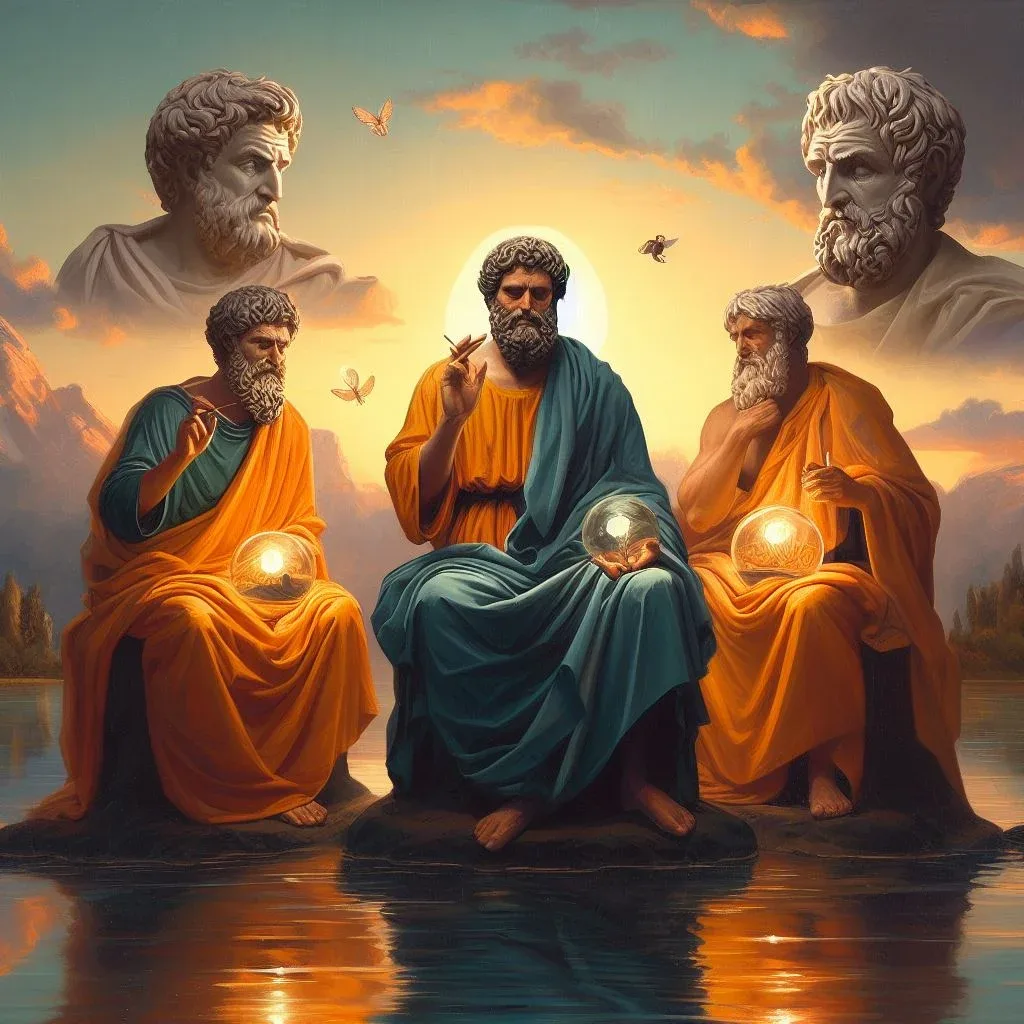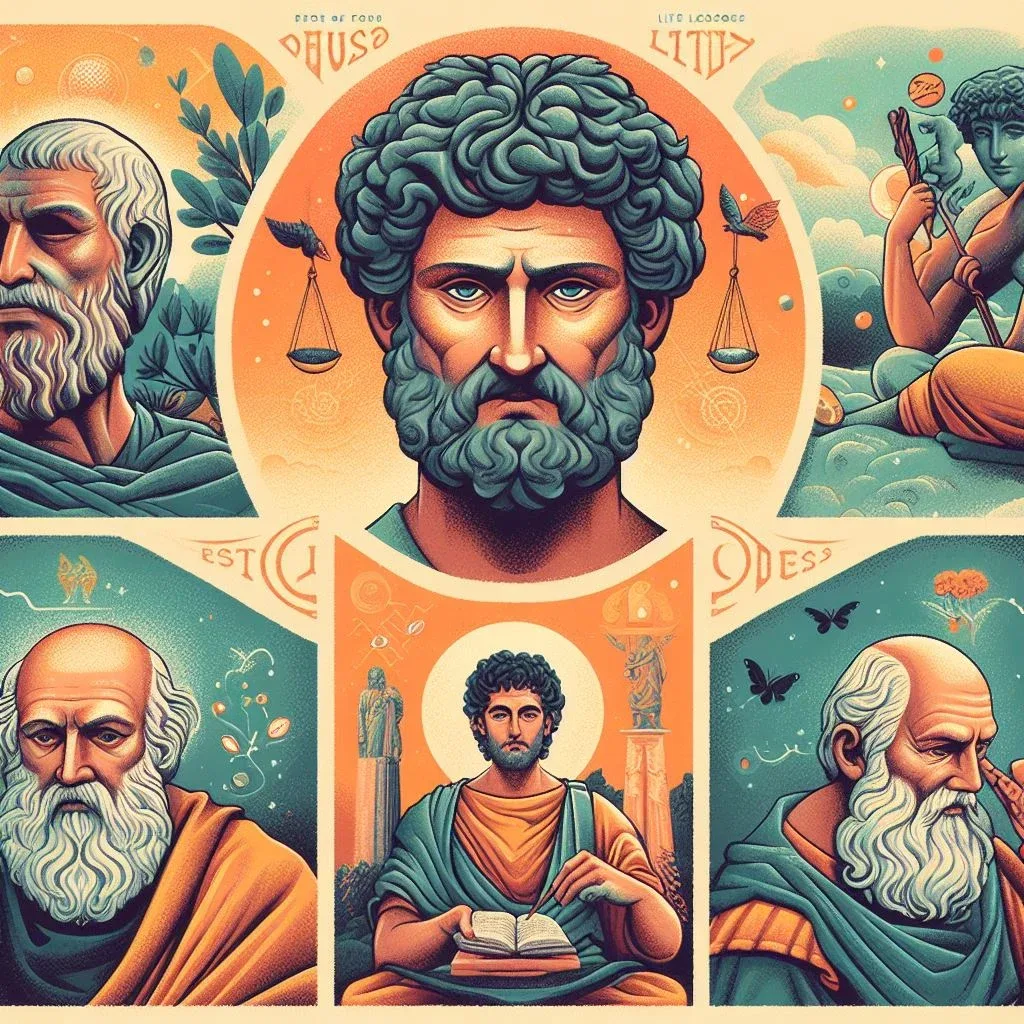Stoicism is an ancient philosophy that continues to inspire and influence people's lives to this day. Her lessons about virtue, resilience, and self-mastery have a timeless appeal. In this article, we will explore the lives and contributions of some of the great masters of Stoicism, who shaped this philosophy and left a lasting legacy.

1. Seneca: The Philosopher of Practical Wisdom
Lucius Anneus Seneca, often known as Seneca, was one of the most prominent Stoic philosophers. Not only did he write extensively about Stoic philosophy, but he also sought to live by its principles. His letters to Lucilius are a valuable collection of practical advice on how to apply Stoicism in everyday life. Seneca emphasized the importance of self-discipline, self-control, and reflection on the brevity of life.
2. Epictetus: The Slave Who Became a Philosopher
Epictetus, a former slave who became one of the most respected Stoic philosophers, taught that we are responsible only for our own actions and choices. He believed that the pursuit of virtue was the path to true freedom. His manual, known as the “Encheiridium” or “Epictetus Manual,” offers simple principles for living a virtuous life, including accepting what cannot be changed and focusing on what can be controlled.
3. Marcus Aurelius: The Stoic Emperor
Marcus Aurelius, known for his “Meditations,” was a Roman emperor and Stoic philosopher. His meditations are a series of personal reflections on how to live a virtuous life amid challenges and adversity. Marcus Aurelius believed that virtue was the only good thing and that our reactions to circumstances were more important than the circumstances themselves. His meditations offer deep insight into the Stoic mindset.
4. Musonius Rufus: The Renowned Professor of Stoic Ethics
Musonius Rufus, although less known than the other masters mentioned, was an influential teacher of Stoic ethics. He taught that Stoic philosophy was a quest for wisdom and virtue, which could be achieved through self-control and self-discipline. Musonius emphasized the importance of education and self-development as means to achieve moral excellence.
5. Cleanthes: Zeno's Successor
Cleanthes was an early follower of Zeno, the founder of Stoicism. He assumed leadership of the Stoic school after Zeno's death and further developed the founder's teachings. Cleanthes believed that the worship of God was in line with Stoic principles, emphasizing the importance of harmony with nature and the recognition of a divine order in the universe.
Conclusion: Enduring Lessons from the Great Masters of Stoicism

The great masters of Stoicism left us a valuable legacy of wisdom and guidance for living a virtuous life. His lessons about self-discipline, acceptance, resilience, and self-control continue to inspire those seeking a more meaningful life. Although they lived in ancient eras, their ideas are timeless and offer a practical guide for facing the challenges of modern life with wisdom and dignity.
Stoicism, through its teachers, teaches us that the key to a life well lived lies in our own choices and the constant search for virtue. His lessons have transcended time and continue to illuminate the path to self-discovery and self-transformation.
Keep these lessons in mind as you seek to apply Stoicism in your own life, remembering that the journey to virtue is ongoing and rewarding.
FAQ – Great Masters of Stoicism: Life Lessons from Ancient Philosophers
In this FAQ, we will address some frequently asked questions related to the text about the great masters of Stoicism and their timeless life lessons.

1. Who were the main Stoic philosophers mentioned in the article?
The main Stoic philosophers mentioned in the article are Seneca, Epictetus, Marcus Aurelius, Musonius Rufus and Cleanthes.
2. What is the importance of Stoicism in philosophy?
Stoicism is one of the main philosophical schools of antiquity and continues to be a significant influence on contemporary philosophy. Its lessons about virtue, resilience, and self-mastery have timeless relevance.
3. What is Marcus Aurelius’ “Meditations”?
The “Meditations” of Marcus Aurelius are a collection of personal reflections written by the Roman emperor on how to live a virtuous life amid challenges and adversity. These meditations offer deep insights into the Stoic mindset.
4. What is the role of self-discipline and self-control in Stoicism?
Self-discipline and self-control play a fundamental role in Stoicism. They are considered means to achieve moral excellence and live according to Stoic principles.
5. How can I apply the lessons of the Stoic masters to my everyday life?
You can apply the lessons of the Stoic masters to your daily life by practicing self-discipline, reflecting on the impermanence of life, cultivating virtues such as courage and justice, and focusing on what is within your control.
6. Is Stoicism a religious philosophy?
No, Stoicism is not a religious philosophy. Although some Stoics have recognized a divine order in the universe, Stoicism is primarily a philosophy of life that emphasizes virtue and self-transformation.
7. What is the relevance of Stoicism in modern times?
Stoicism continues to be relevant in modern times as it offers practical guidance for facing challenges, dealing with stress, and pursuing a virtuous and meaningful life. Its lessons are applicable to a variety of contemporary contexts and challenges.
8. Is Stoicism compatible with other philosophies or beliefs?
Yes, Stoicism can be compatible with other philosophies or beliefs. Many people combine Stoic principles with their own beliefs and values, adapting them to suit their individual needs and perspectives.
The masters of Stoicism offer valuable lessons for all who seek a more meaningful, authentic and virtuous life. His reflections and teachings continue to inspire and guide current and future generations.




